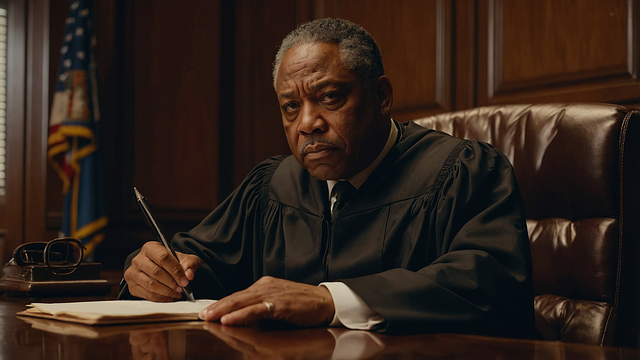Securities class actions are legal strategies where investors collectively sue companies or executives for misconduct related to stocks and securities, operating within a complex framework to protect rights and ensure corporate accountability. A key aspect is appealing a criminal sentence decision, which allows investors to demand justice and maintain market integrity, influencing corporate behavior, investigations, and public trust. In general criminal defense, appealing sentences is crucial, with attorneys identifying appeal grounds, crafting arguments, and aiming for favorable outcomes. When appealing securities-related convictions, thorough review of the decision, strategic planning, leveraging legal loopholes, and fostering alliances are vital for success. Notable appeals, like SEC v. Enron, have led to stricter corporate regulations, shaping the legal landscape and promoting fair business practices.
Securities class actions are powerful legal tools that protect investors from fraudulent activities. This article delves into the intricate world of securities litigation, focusing on understanding the legal frameworks governing these cases. We explore key aspects, including the role of appeals in criminal sentencing decisions related to securities fraud.
Learn about crucial considerations when appealing a securities-related conviction and discover successful strategies for navigating complex class action lawsuits. Through case studies, we analyze notable appeals and their ripple effects on financial markets, offering valuable insights for investors and legal professionals alike.
- Understanding Securities Class Actions: An Overview of Legal Frameworks
- The Role of Appeals in Criminal Sentencing Decisions
- Key Considerations When Appealing a Securities-Related Conviction
- Strategies for Success in Securities Class Action Lawsuits
- Case Studies: Notable Appeals and Their Impact on Financial Markets
Understanding Securities Class Actions: An Overview of Legal Frameworks

Securities class actions are legal battles that arise when a group of investors collectively sues a company or its executives for misconduct related to securities or stocks. These cases operate under a unique legal framework designed to protect investors and ensure corporate accountability. The process involves intricate procedures, including understanding the specific rules and regulations governing securities transactions and violations.
In the event of a suspected breach, investors can band together and appeal a criminal sentence decision if applicable, leveraging their collective standing to demand justice. This mechanism is vital in maintaining the integrity of financial markets, holding corporations and individuals accountable for fraud or other illegal activities, and providing a voice to those affected by such misconduct. It also plays a significant role in shaping corporate behavior within the general criminal defense landscape, influencing all stages of the investigative and enforcement process, and fostering trust among philanthropic and political communities.
The Role of Appeals in Criminal Sentencing Decisions

In the realm of general criminal defense, one critical aspect often overlooked is the process of appealing a criminal sentence decision. This legal maneuver allows individuals convicted of crimes to seek review and potential reversal of their judgments. Appeals play a pivotal role in ensuring fairness within the justice system by offering a chance for a fresh look at cases where errors may have occurred during initial proceedings. From procedural mistakes to arguments regarding excessive sentencing, appeals aim to correct imbalances and achieve extraordinary results.
When navigating the complexities of appealing a criminal sentence, skilled attorneys become invaluable assets. Their expertise lies in identifying potential grounds for appeal, constructing compelling legal arguments, and presenting them effectively before the courts. Through dedicated efforts, they strive to secure winning challenging defense verdicts that can significantly impact their clients’ lives. This process demands meticulous attention to detail, a deep understanding of criminal law, and the strategic utilization of available resources—all essential elements in the pursuit of justice.
Key Considerations When Appealing a Securities-Related Conviction

When appealing a securities-related conviction, there are several key considerations to keep in mind. The first step is to thoroughly review the criminal sentence decision, understanding the specific charges and evidence that led to the outcome. This involves examining the legal arguments presented during the trial or investigation, as well as any procedural errors that may have occurred. In high-stakes cases, avoiding indictment is paramount, necessitating a deep dive into all stages of the investigative and enforcement process to identify potential weaknesses in the prosecution’s case.
Additionally, crafting a compelling appeal requires strategic decision-making. This includes deciding on the best legal strategies to challenge the conviction, gathering supporting evidence, and preparing persuasive arguments. It’s crucial to present a coherent narrative that highlights the unfairness or inaccuracies in the original ruling, especially when dealing with complex financial matters. The goal is to ensure a fair and just outcome, particularly in cases where the stakes are high and reputations are at risk.
Strategies for Success in Securities Class Action Lawsuits

In navigating complex securities class action lawsuits, successful outcomes often hinge on robust strategic planning. One key strategy is to appeal a criminal sentence decision when applicable, leveraging legal loopholes and new evidence to overturn or reduce penalties for clients. This requires meticulous research and a deep understanding of both the legal intricacies and the broader financial landscape. By presenting compelling arguments and strong mitigating factors, lawyers can achieve extraordinary results, not just for their clients but also for across the country affected investors.
Additionally, fostering alliances with philanthropic and political communities can significantly enhance representation. These networks provide access to valuable resources, expertise, and advocacy that go beyond mere legal representation. By engaging these communities, plaintiffs’ attorneys can ensure their cases gain widespread attention and support, increasing the likelihood of achieving just settlements. This collective approach not only benefits individual clients but also contributes to maintaining integrity and transparency across financial markets.
Case Studies: Notable Appeals and Their Impact on Financial Markets

Securities class actions often reach pivotal moments when parties choose to appeal a criminal sentence decision. These appeals can significantly influence the trajectory of financial markets, as they set precedents and shape investor confidence. Case studies of notable appeals reveal their profound impact on regulatory enforcement and corporate governance.
For instance, high-profile cases like SEC v. Enron led to enhanced scrutiny of corporate disclosures and accounting practices, resulting in stricter regulations across the country. Successful winning challenging defense verdicts for his clients has been a testament to the importance of robust legal representation in navigating complex securities litigation. These appeals not only challenge initial rulings but also contribute to a dynamic legal landscape, ensuring that market participants are held accountable while fostering fair and transparent business practices.
Securities class actions, navigating complex legal frameworks, play a crucial role in upholding justice within the financial markets. Understanding the intricacies of these cases, as outlined in this article, is vital for investors and legal professionals alike. From grasping the overview of legal frameworks to recognizing the significance of appeals in criminal sentencing decisions, each section provides insight into the dynamic nature of securities law. By exploring key considerations during appeals and employing successful strategies in class action lawsuits, individuals can navigate these challenging scenarios effectively. The included case studies further emphasize the tangible impact of appeals on financial markets, demonstrating the importance of a thorough understanding of this topic.






